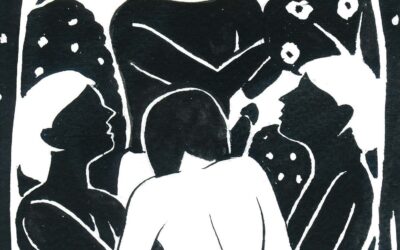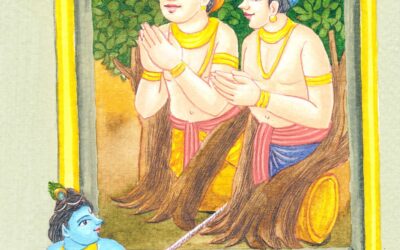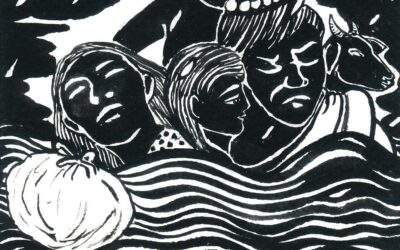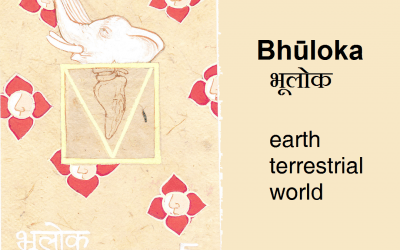The Elemental Stage
I am the Child
Know that the eradication of the identification with the body is charity, spiritual austerity and ritual sacrifice; it is virtue, divine union and devotion; it is heaven, wealth, peace and truth; it is grace; it is the state of divine silence; it is the deathless death; it is gyāna, renunciation, final liberation and bliss.7 snakes lead to this level from different planes, demonstrating the importance of realising the nature of the grossest (most elemental) level of our being, as also the most primary.
Kāma
wishing, feeling or expressing a strong desire or hope for someone or something. lust, A very strong and physical desire. Passion, strong and barely controllable emotion. “kāma” (desire – of every kind, including noble or non-noble aims) means enjoyment. Its higher meaning, i.e., para-kāma, refers to a higher desire for the Supreme and apara-kāma, lower meaning, refers to base desires such as sexual enjoyment. In the context of Srimad Bhagwad Geeta, kāma implies attraction and indulgence, lust and desire. kāma is also the primary need for creation. It is one of the 4 puruṣhārthas (the 4 aims of life), a healthy aim when pursued without sacrificing the other three aims: “dharma” (righteousness, moral life), “artha” (material prosperity, income security, ensuring means for survival) and “moksha” (liberation, release).
Mithyā
false, Not real, but made to look or appear real, deceiving. Duality, two different things, emotions, thoughts, or beings. Illusion, something that is not really what it seems to be. “mithyā” is fallacy. Fallacy of what? Well, look 6 places behind, you find māyā or duality. mithyā is the fallacy of duality. What is “duality”? How should we understand it? Well our perception of ourselves as individuals implies duality. Our perception of “others” as “the other” implies duality.
Abhimāna
pride, Feelings of one’s own worth and respect. Insidious, proceeding in a gradual, subtle way, but with very harmful effects. Self-conceit, undue pride in oneself, the state of being too proud of yourself and your actions. “abhimāna” is “mada” (conceit), a “sense of self-intoxication”, false pride or even self-deception. Abhimāna is of the 6 weaknesses that embody the manifested self. “Self-pride” should be an important aspect of one’s personality, one’s identity. What is the negative aspect of this abhimāna? Abhimāna also has a “tendency to veil” and hence affects our capability to take decisions or act in accordance with dharma.
Moha
attachment, a feeling of strong or constant regard for and dedication to someone or something. Delusion, The attachment to an idea which may not have any objective reality. “moha” (delusion, attachment) is the cause of “vāsanā” and bondage. It brings the player time and again to the phenomenal world through births and re-births. “moha” is the attachment to “māyā” (cell 2). Those who dwell in “moha” (cell 6) love sensual pleasures, spend their energy in the fulfillment of desires, are victims of anger and greed, act against “dharma” and are selfish.
Bhūloka
earth, the place of being, soil, the plane of physical existence, where we exist. Place, a location or a plane with multiple dimensions. bhurloka, literally means ‘the earth-world.’ In the context of the energy chakras, the ‘mūlādhār chakra’ defines our relation to Earth. It impacts our vitality, passion and survival instincts. mūlādhār chakra – is the first chakra on the spine of the player and the play. In a psychic reference frame, the ‘mulādhār’ is the dwelling place of the kundalini, the psychic energy that the yogi seeks to raise to experience the “super human” in him. All sorts of physical problems are connected to the mulādhār.
Lobha
greed, Intense and selfish desire for something, especially wealth, power, or food. Covetousness, having a craving for possession, specially for something owned by someone else. “lobha” (greed), is another of the six arishadvarga (weaknesses). “lobha” is commonly experienced and easy to identify. It is the desire for acquiring in excess of ones needs. Greed arises when the player confuses her “sense of unfulfillment” with the “need for essential materials for survival”.
Krodha
anger, A strong feeling of annoyance, displeasure, or hostility. Wrath, Extreme anger. Passion, Strong and barely controllable emotion. It is interesting to note that the number 3 is also representative of the fire element. The positive side of this energy expresses itself as creativity, however if motivated by negative thoughts, it has a destructive nature and manifests as “krodha”. In Vedantic philosophy, understanding and controlling krodha is considered an important step towards becoming a civilised and an evolved being.
Māyā
illusion, an instance of a wrong or misinterpreted perception of a sensory experience. Hallucination, an experience involving the apparent perception of something not present. “māyā”, illusion, the world of names and forms, is a veil that this pure manifestation of the cosmic consciousness must realise and conquer. It is as infinite as cosmic consciousness. Realising the nature and the presence of “māyā” in our being is important to our path to cosmic consciousness. “ahaṅkāra” (egotism – cell 55) is the highest manifestation of this weakness. The number two could also signify “duality” which is the primary nature of “māyā”.
Janma
avatār, a manifestation of a deity or released soul in bodily form on earth; an incarnate divine teacher. Divine Birth, a birth without the arishadvarga – the six passions of the mind. In Hindu theology, arishadvarga are the six passions of mind or desire: kāma, krodha, lobha, moha, mada and mātsarya; the negative characteristics of which prevent man from attaining moksha. “janma” It is extremely rare that a person lands on janma. She can only land on janma if she throws 3 consecutive throws of 6 on the dice, while stationed in vaikuṇṭha.








